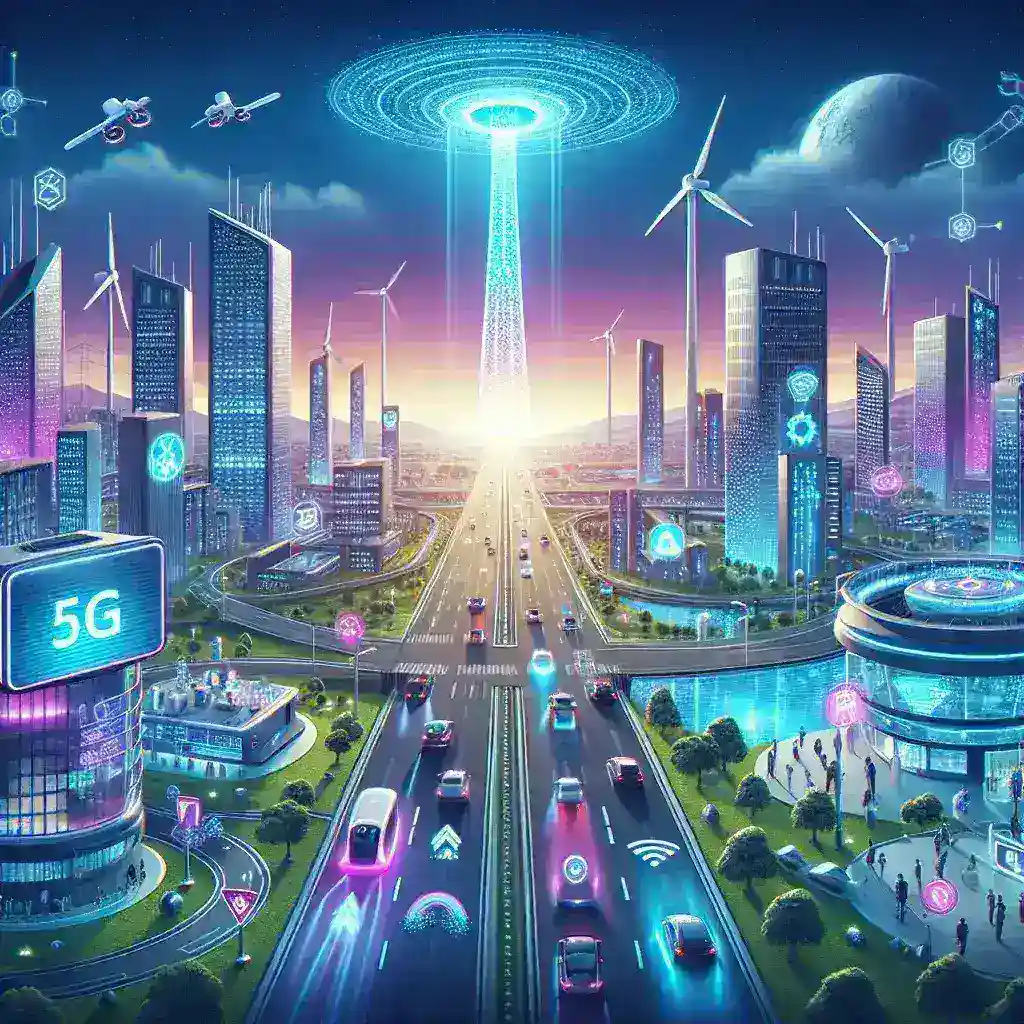Introduction
The advent of 5G technology represents a significant leap forward in connectivity, promising to revolutionize various sectors, especially in the development of smart cities. This article delves into the role of 5G in the future of smart cities, examining its potential, applications, and the benefits it brings to urban living.
Understanding 5G Technology
5G, or fifth-generation mobile network, is designed to deliver faster speeds, increased capacity, and lower latency compared to its predecessors. With enhanced data rates that can reach up to 10 Gbps, 5G technology enables a seamless exchange of information among devices, which is essential for smart city applications.
The Key Features of 5G
- High Speed: 5G networks offer significantly faster download and upload speeds, allowing users to access data and services in real time.
- Low Latency: A reduction in lag time is crucial for applications that require instant feedback, such as autonomous vehicles and telemedicine.
- Massive Connectivity: 5G can support up to a million devices per square kilometer, making it ideal for smart city environments populated with various interconnected devices.
- Network Slicing: This feature allows the network to be divided into different sections for specific applications, ensuring optimal performance and resource management.
The Importance of 5G in Smart Cities
As urban areas continue to grow, the need for efficient infrastructure, sustainable practices, and improved quality of life becomes paramount. 5G is integral to achieving these goals by enabling various smart city applications:
1. Enhanced Transportation Systems
With 5G technology, transportation systems can be transformed into intelligent networks. This includes:
- Smart Traffic Management: Real-time traffic data can be analyzed to optimize traffic flow, reduce congestion, and enhance overall mobility.
- Autonomous Vehicles: 5G provides the necessary connectivity for self-driving cars to communicate with each other and the surrounding infrastructure to improve safety and efficiency.
- Public Transportation: Smart buses and trains equipped with 5G can share data regarding delays, routes, and passenger loads to improve services and customer experiences.
2. Sustainable Energy Management
Smart cities aim to reduce their carbon footprint, and 5G technology plays a crucial role in energy management:
- Smart Grids: 5G enables real-time monitoring and control of energy consumption, improving efficiency and allowing for the integration of renewable energy sources.
- Smart Meters: With 5G, households can receive instant feedback on their energy usage, leading to more informed decision-making regarding energy consumption.
3. Smart Infrastructure
5G technology improves the way cities manage their infrastructure:
- Smart Buildings: With connected systems for heating, ventilation, air conditioning (HVAC), and lighting, 5G can enhance energy efficiency and occupant comfort.
- Infrastructure Monitoring: Sensors powered by 5G can monitor the health of bridges, roads, and pipelines, allowing for proactive maintenance and reducing the risk of failures.
4. Enhanced Public Safety
Safety is paramount in smart cities, and 5G can help achieve this goal by:
- Real-Time Surveillance: High-definition video streaming from surveillance cameras can be transmitted over 5G networks for more effective emergency response.
- Emergency Services: First responders equipped with 5G-enabled devices can access critical information in real time, improving the speed and efficiency of their operations.
Challenges of Implementing 5G in Smart Cities
While the opportunities presented by 5G in smart cities are vast, the implementation comes with challenges:
- Infrastructure Costs: The development of 5G networks requires significant investment in infrastructure, which may be a barrier for some cities.
- Regulatory Issues: Policymakers must create frameworks that promote innovation while ensuring security and privacy.
- Technical Challenges: The rollout of 5G technology necessitates overcoming various technical hurdles, including ensuring coverage and addressing potential network congestion.
The Future of Smart Cities with 5G
The future of smart cities is undoubtedly tied to the advancements and deployment of 5G technology. As cities evolve, we can expect to see:
- Increased Data Usage: The demand for data will grow, necessitating robust networks capable of supporting various applications.
- Innovative Solutions: Smart cities will leverage 5G to develop new services and solutions that improve urban living.
- Integration of Technologies: 5G will facilitate the integration of different technologies, including IoT, AI, and big data, further enhancing smart city functions.
Conclusion
5G technology is set to redefine the concept of smart cities by providing the necessary connectivity to support various urban applications. From enhancing transportation systems to improving energy management and public safety, the role of 5G is pivotal in shaping the cities of the future. As we continue to explore the possibilities, it becomes clear that investing in 5G infrastructure will be essential for creating sustainable, efficient, and connected urban environments that cater to the needs of their residents.

